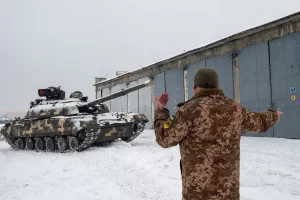The African Union (AU) Transition Mission in Somalia (ATMIS) and the European Union Capacity Building Mission in Somalia (EUCAP Somalia) have wrapped up a two-week specialized training on maritime security as part of ongoing efforts to protect the country’s long coastline.
The AU mission said in a statement issued on Thursday evening in the Somali capital of Mogadishu that 15 Somali Navy and Coast Guard (SNCG) officers took part in the training on general seamanship, basic safety, boat maintenance, radio communications, maritime law, and first aid skills.
Sam Okiding, ATMIS force commander, described the training as a key milestone for Somalia in building a strong naval force that would be significant in supporting the country’s security architecture, ahead of the ATMIS exit in December 2024.
« This second training is in line with the objectives enshrined in the Somali Transition Plan and the ATMIS mandate, specifically with regard to mentorship and capacity building of the Federal Government of Somalia institutions across all domains, » Okiding said.
The first group, also comprising 15 soldiers, completed a similar training in June which involved both theory and practical sessions.
The ATMIS said the objective of the training was to prepare Somali security forces to assume maritime security responsibilities ahead of the exit of ATMIS forces at the end of 2024.
Somalia boasts Africa’s longest coastline, and its security is critical to the stability of the country and the Horn of Africa region in general.
Sven Lidner, senior maritime advisor for EUCAP Somalia, noted that the crisis management mission would continue training Somali security forces to help the country establish an efficient and vibrant security force.
« It is critical for us to continue with the series of training, ideally every two to three months, in order to continue and improve the capacity of the SNCG, » Lidner said.
Abdiwahid Ali Afrah, SNCG deputy commander, lauded the facilitators for instilling the necessary skills and knowledge in the officers.
« We have seen the fruits of their labor in securing our coastline, » he said, adding that the training would also help improve professional standards in the country’s navy.




































